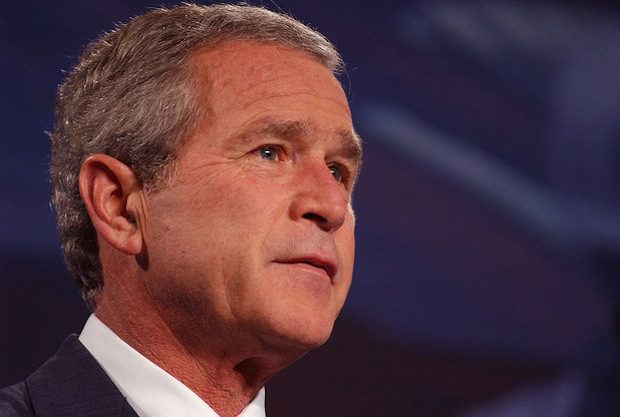The Last Gasp of Bush-Era Republicanism

Jim Antle sees Evan McMullin as the candidate for Republicans who thought there was nothing seriously wrong with the pre-Trump GOP:
But McMullin’s following seems to be disproportionately made up of conservatives who thought everything was fine until Trump showed up like an uninvited dinner guest who lacked the Bush-era GOP’s table manners.
McMullin supporters were generally happy with George W. Bush. “For a decade, Republican voters have signaled they wanted to protect Medicare, cut immigration, fight fewer wars, and nominate no more Bushes,” wrote former Bush speechwriter David Frum. “Their party leaders interpreted those signals as demands to cut Medicare, increase immigration, put boots on the ground in Syria, and nominate another Bush.”
The McMullin campaign espouses three out of four of those positions.
That lines up with my impression of McMullin, especially as it relates to his foreign policy views. As I noted last month, McMullin holds dreadfully conventional hawkish views, and this is one of the main selling points of his candidacy to some Republicans. He touts his interventionist position on Syria, which is indistinguishable in most respects from Clinton’s, and takes every predictable stand that one would expect from a Rubio supporter: he is for sending weapons to Ukraine, wants to confront Russia in Syria, backs the Cuba embargo, and favors continued American support for the war on Yemen.
The new article brought to mind something odd that I read last week in which McMullin and his supporters were described as “the future of politics.” Leonid Bershidsky also went on to say this:
His stands don’t differ much from Republican orthodoxy: He calls for entitlements reform to cut the deficit and government debt, and wants to replace Obamacare with a cheaper system that would do more to foster competition among insurance companies and downsize government in general. His biggest objection to Clinton, apart from the litany of accusations stemming from the e-mail scandal, is that she’s a government expansionist. In the traditional Republican vein, he’s more of a national security hawk than the Democratic nominee, and rejects what he sees as Trump’s affection for President Vladimir Putin.
That isn’t the future of politics in the GOP. It is its recent and unlamented past. Regardless of how well McMullin does in Utah, his campaign isn’t going to lead to a “new conservative movement.” As it is, McMullin’s support represents a pale shadow of the old movement that no longer knows how to talk to Republican voters.
Comments